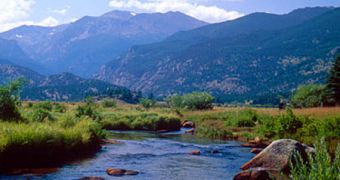Just recently, the University of Colorado Boulder made public the findings of a study conducted on alpine vegetation and the ways in which it reacts to pollution.
This particular research focused on the plant species found in Rocky Mountain National Park and on the effects nitrogen emissions have on them.
More precisely, the specialists agreed on a meadow close to the Chapin Pass as their study site.
As the scientists explain, nitrogen compounds get released into the atmosphere by power plants, automobiles and various agricultural practices.
Once they become a part of the air we breathe, they can travel quite far distances and eventually negatively impact on natural ecosystems throughout the world.
Thus, it seems that the Rocky Mountain National Park vegetation is already responding to the presence of this chemical compound.
Professor William Bowman explains that “The changes are subtle, but important. They represent a first step in a series of changes which may be relatively irreversible.”
The professor also added, “There is evidence that indicates once these changes occur, they can be difficult if not impossible to reverse. It is best to recognize these early stages before the more harmful later stages happen.”
The concluding report drawn up at the end of the research indicates how, due to nitrogen emissions in the atmospheric air and nitrogen accumulations in the soils, the aforementioned meadow lost some of its older green “residents.”
As well as this, the scientists noticed that, whilst some plant species began to disappear, others stepped in to take their place.
Should things continue to unfold in this manner, it is quite likely that at some point in the future the alpine biodiversity in Rocky Mountain National Park will look significantly different than it does today.
More so given the fact that, should the flora here change, odds are that the fauna will also soon begin to undergo various transformations.
For the time being, the good news is that air quality managers and environmentalists are working towards coming up with ways to reduce or at least control nitrogen emissions.
More information regarding this study can be found on the University of Colorado Boulder's website.

 14 DAY TRIAL //
14 DAY TRIAL //